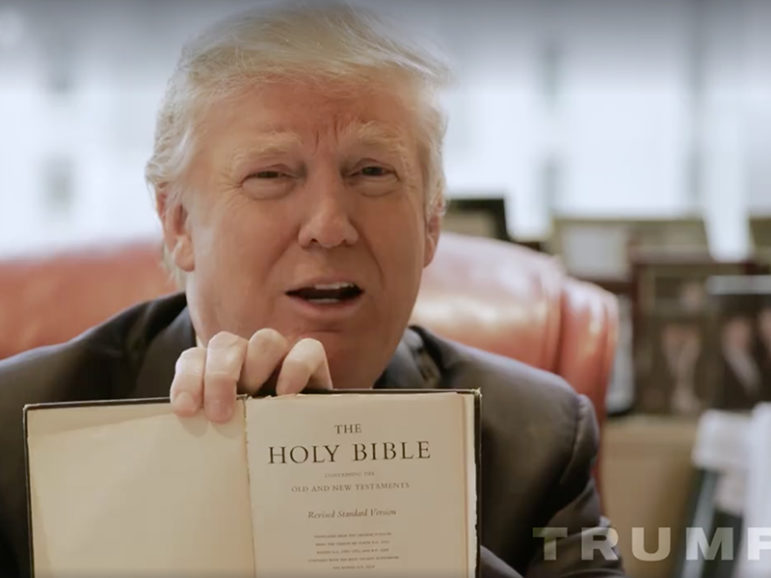What are most rabbis trying to figure out – right about now?
They are trying to figure out what to say tomorrow evening, and on Shabbat morning.
I have prayed for governments many times in my life, and often I have had to snicker.
Or, shudder.
It is Rosh Ha Shanah, 1973. The Watergate scandal has come to light. I am sitting in synagogue with my parents. I recall saying the prayer in the old Union Prayer Book, praying for God’s protection of “our president, his counselors and advisors.”
I remember my father turning to me, and making a sour face, and protesting: “I am not going to pray for Nixon, or Haldeman, or Ehrlichman , or John Mitchell.”
That was the day that my father began his journey away from the beauty of Jewish liturgy.
It is June, 1983. I am sitting in synagogue in Moscow, at the height of the Soviet oppression of Russian Jews. The worship leaders are asking God: “to protect the Soviet Union, the Communist Party, and the Supreme Soviet.” I cannot tell if there is any irony in their words. Certainly they knew that there was more than a handful of KGB agents sitting in the synagogue among the worshipers.
It is July, 1998. I am sitting in West London Synagogue – one of Reform Judaism’s flagship congregations.
The prayer is for “our sovereign Lady, Queen Elizabeth, and all the Royal Family, her advisers and her counselors.”
In preparation for this presidential inauguration, I have done a great deal of research – with the help of my friend and colleague, Rabbi Barry Schwartz, who did his rabbinical thesis on this topic, and that of Professor Jonathan Sarna at Brandeis University.
If you look at European versions of this prayer, you will notice something.
You already heard the Russian version of the prayer that mentions the Communist Party – specifically.
I have also seen older Russian versions.
In a Russian siddur from the late Czarist era, the prayer specifically mentions Czar Nicholas, Alexandra, the Queen Mother Maria and Crown Prince Alexei — whom the prayer exalts in the loftiest of tones.
Again, the names are specific.
You already heard the British version of the prayer that mentions the Queen – specifically, by name.
By contrast, however, every American version of the prayer for the government is general.
Most American synagogues have prayed for the nation’s officeholders without naming them (“the President”). We honor the office, and not the person.
This brings me to what I consider to be the holiest moment in the American year — the State of the Union address.
More specifically, it is the moment when the President is about to enter the chamber. The sergeant at arms speaks the holiest words of the American year: “Mr. Speaker, the president of the United States.”
At that moment, everyone leaps to his or her feet.
This – even though, normally, about half the people in that room would be wishing at that moment that another person would be walking through the door.
For it is not about the President.
It is about the Presidency.
Compare this to the experience in Europe.
Why did prayers for the government consistently mention kings and queens by name?
Because they had to.
In every European country — England, Spain, the German states, Poland, or Russia – the fate of the Jews depended on the whim of the king or queen – as an individual. Their fate was always conditional on the whims of the king.
The oldest synagogue in Europe is the Altneuschul in Prague, completed in 1270.
Altneuschul literally means the Old-New Synagogue.
But Altneuschul might refer to the term al t’nai, on condition – that the presence of the Jews in Prague, and elsewhere in Europe, was al t’nai – on the condition that they were to be loyal and useful.
Israel was created to put an end to that situation.
And so was the United States. Jews would be part of the American fabric of life from the very beginning, and it would always be that way.
That is what makes this American moment so fraught with apprehension.
For in recent weeks and months, we have seen an upsurge of attacks on Jews and on Jewish institutions.
Just in the past few weeks, more than thirty American Jewish institutions – day schools and JCCs, some of them here in Florida – have received bomb threats.
Jews are afraid – and so are other American minority groups – Muslims, Hispanics, immigrants, and LGBTs.
So, if a president is going to choose a biblical role model, what are the choices?
The best Jewish ruler: King David.
The worst Jewish ruler: King Ahab, the husband of Queen Jezebel – who imported idolatry into the kingdom of Israel, and who was incompetent and corrupt – a bad combination.
The best gentile ruler: King Cyrus of Persia – who permitted the Jews of his kingdom to return to Judea and to re-establish Jewish sovereignty.
And the worse gentile ruler?
It is either Pharaoh – who makes his first appearance in this week’s Torah portion – a ruler who was paranoid, genocidal, and oppressive.
Or, it is King Ahasuerus, the husband of Queen Esther – vain, egotistical, a party animal, and easily swayed by others.
So what is my prayer?
May this new president embody David and Cyrus, and never Pharaoh and Ahasuerus.
We can only hope.






